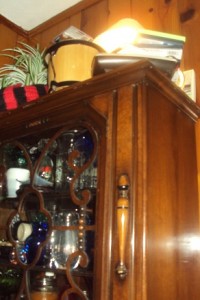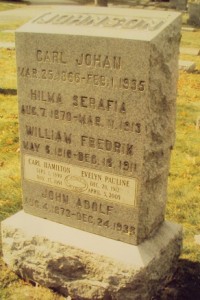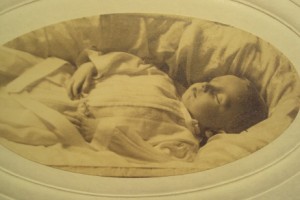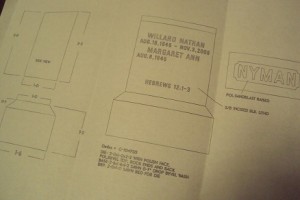While filing a document recently, my eye caught the corner of a paper with Nate’s writing on it. Naturally I pulled it from the file drawer to take a closer look.
It was a letter written by Nate to Nelson in 1996. The five page synopsis of his career is remarkably candid, touching on the business highs and lows of recent decades. Although Nate had never shared his personal financial data with his children or anyone else, on this occasion he laid everything out in full.
Nelson remembers receiving the original letter and being surprised at how much his father candidly shared. Nate wrote about a tortured period in his life, crediting an unbalanced love of money as the reason for his struggle, mentioning a bitterness that took root at that time.
Most men shy away from honest sharing, and Nate, too, had trouble being frank with peers. Below are parts of his letter (with Nelson’s permission). I share it because of its unusual openness and because I know if Nate came back to town with the heavenly perspective he now has, he’d eagerly tell these things to whoever would listen.
Although I won’t share the details he asked Nelson to “keep confidential,” here’s some of what he wrote:
* * * * * * * * * * * * * * *
Nelson,
The text I constantly think of when I consider the role of the Christian man in American society is Hebrews 12:1 – “Therefore, since we are surrounded by such a great cloud if witnesses, let us throw off everything that hinders and the sin that so easily entangles, and let us run with perseverance the race marked out for us.”
Actually the entire 12th chapter of Hebrews is encouragement to live a godly, Christ-centered life in the world – a world of persecution, boredom, temptation, indifference, ridicule, ease, sloth and human needs. “Run the race marked out for us.”
In other words, God’s chosen path for us, not ours. We don’t always get our first choice in the things of this world – sometimes we think we would have chosen a different body, mind, era, parents, generally different circumstances. But Christ’s mission for Christian men is to live out in a godly way what He has selected for us. We are to do so in a way that honors Him. We are to live as an example of Christ to our families, churches and coworkers.
The man who knows Christ wants to live for Him, but as imperfect humans, we fall short. Sometimes we fail because of worldly success and at other times because of failure.
In my life I went through a period of intense striving for money and the recognition it brings in the U.S.A. [Here Nate detailed his finances and how well he was doing at earning.] Then my partner had a stroke. One year later, the Congress passed the Tax Reform Act of 1986. This law reduced the net revenue of my company by $1,000,000 a year, and by 1989 bankrupted me.
I was unhappy when I had money, because I always wanted more. When I lost it, I wanted it back. I was unhappy and became bitter.
[To be continued, two days hence…]
“Whoever loves money never has enough; whoever loves wealth is never satisfied with their income.” (Ecclesiastes 5:10)







